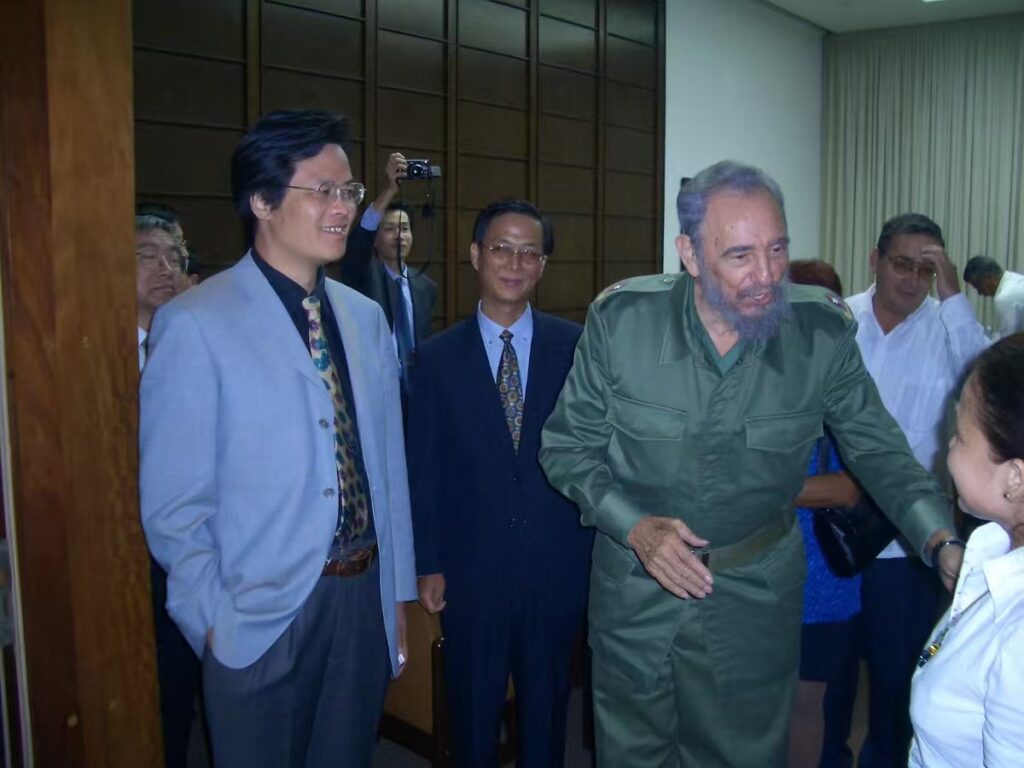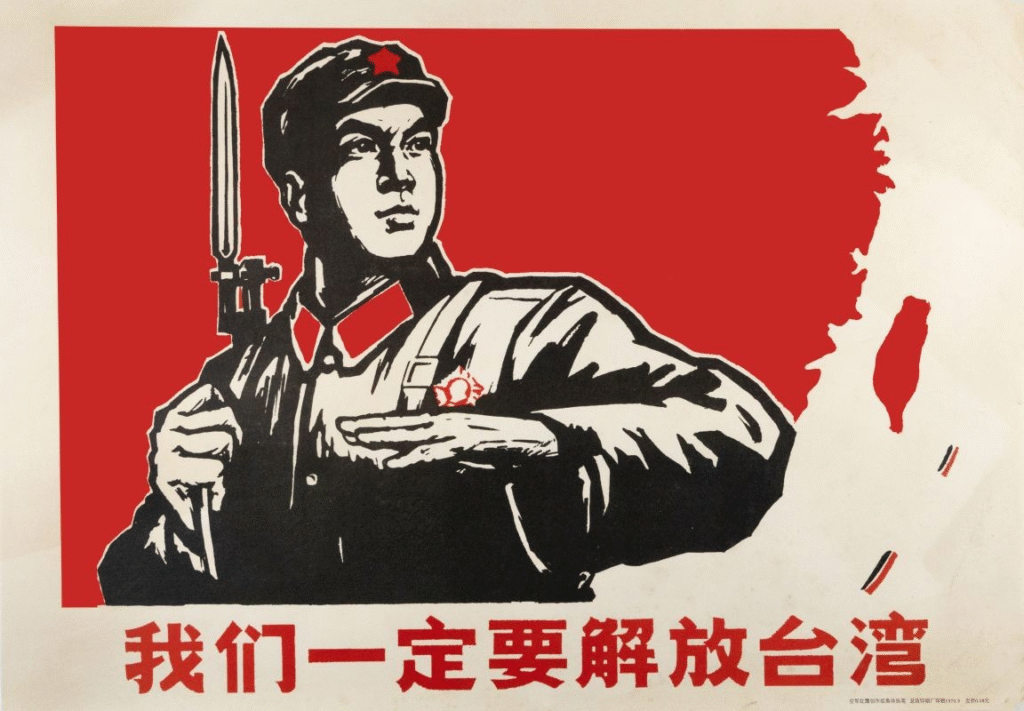Jiang Shixue,
Professor at Macau University of Science and Technology,
16/10/2025

Five thousand years of Chinese civilization has created many great figures in China. For instance, Confucious (551-479 B.C.), a remarkable philosopher, a thinker and an educator, is well-known around the world. The Confucious Institute, an institution offering courses on Chinese language teaching, quite popular in Latin America, is named after him.
There are many other big names in China. They are less well-known than Confucious, but also influential upon China’s development path. Zheng Guanying (1842-1922), or Chiang Kun Yin in Wade-Giles spelling, was one of these icons. When he lived in Macau, he completed his famous book, Words of Warning to a Prosperous Age, also translated as Blunt Words in a Time of Prosperity, published in 1892. In the book he put forward many clever ideas, proposing how China should implement political and economic reforms, promote education, and build up national strength to guard against foreign invasions. It is believed that this book had a significant impact upon many Chinese, including Mao Zedong, who successfully led the Chinese revolution to establish the People’s Republic of China in 1949.
In 1840, British navy invaded China, triggering the first Opium War. Since then, the western powers had bullied China many times. Many Chinese people were asking this question: Why was China so weak?
Zheng Guanying believed that military invasion of the western powers had dealt a heavy blow to China and their purpose was to plunder China’s economic resources. He said that “military warfare” and “commercial warfare” are interrelated, and “commercial warfare” was more harmful and lethal than “military warfare”. Based on this belief, Zheng Guanying suggested that solely establishing military strength was not enough to defend China. Only by developing the economy can China successfully defeat military invasion by the western powers because economy was the foundation of any nation’s strength.
To promote economic development, as Zheng Guanying proposed, it was necessary to establish modern enterprises, build infrastructure such as railways and telegraphs, establish a banking system, issue paper currency, and break foreign financial monopolies. He also wished to see that education reforms could be implemented to nurture more talented people and skilled workers by introducing Western science and technology.
Zheng Guanying criticized the Qing government’s suppression of private capital and advocated for protection and encouragement of the development of private business. He also put forward the idea that it was necessary to establish a central economic management agency, enact commercial laws to protect private property rights and business contracts, and encourage the formation of chambers of commerce for private merchants.
In the face of western bully, Zheng Guanying suggested that China should accumulate national strength, observe the international situation in a correct way, and, when the time is right, adeptly utilize international rules to revise those humiliating and unequal treaties imposed on China by the western powers. He said, “If our strength is insufficient, we must endure humiliation and bear the burden, maintaining diplomatic engagement with the western powers. Once our strength is sufficient and we hold the strategic advantage, seizing the opportune moment, we can amend all treaties established in the past that hinder China’s national welfare and people’s livelihoods.” He even argued that, when China’s strength is strong enough, it could also impose retaliatory tariffs on the west. “If they [the western powers] levy heavy taxes on our exported goods, we shall reciprocate by imposing heavy taxes on their goods as well, thereby protecting our merchants while restraining theirs.”
Thought knows no borders, and wisdom recognizes no frontiers. Latin American countries might draw some useful ideas and valuable thinking from Zheng Guanying.
First of all, Latin America needs to redouble its efforts to promote economic development. The region’s GDP has increased from US$79 billion in 1960 to US$7.3 trillion in 2024.[1] However, in the face of its conspicuous poverty problem, this growth is not enough.
In order to speed up economic growth, Latin America should make more investment in all sectors, particularly in the high-tech and infrastructures by attracting more investment from the outside, including China. Meantime, it must adopt a proper approach to deal with the relationship between the state and market.
Secondly, Latin America needs to pay more attention to education. No matter in Zheng Guanying’s age or the globalization age, education is always fundamental to overcoming the most persistent challenges and securing a prosperous future for any country. While endowed with rich natural resources and a young population, Latin America’s economic growth remains hampered by many issues, one of which is a significant skills gap closely related to the underdevelopment of its education, particularly the primary education. Ultimately, investing in human capital is not merely an educational goal but an urgent economic and social necessity for the region to fully harness its immense potential in the global arena.
Last but not least, Latin America needs to be more courageous towards hegemonism. Given the stark power asymmetry, it is not easy for Latin America to change the reality of “so close to the U.S. and so far away from God”. In the foreseeable future, Latin America will continue to rely on the U.S. for capital, market and technology. But this kind of dependence should be reduced by diversifying the region’s external economic relations. At the same time, as President Lula’s position towards President Trump’s politically-motivated tariffs against Brazil can prove, American hegemonism cannot be countered with weakness, but with brave firmness and resolve. Today’s Latin American countries are much more powerful than the old China when Zheng Guanying lived.
The first group of Chinese migrants arrived in Latin America in the second half of the 16th century. It is unclear whether Zheng Guanying’s book Words of Warning to a Prosperous Age went along with them. We are now in the age of information. It should not be difficult for people in Latin America to know the ideas and thinking of this famous Chinese figure. Hopefully, Latin American people can draw some inspirations from Zheng Guanying.
[1] https://data.worldbank.org/indicator/NY.GDP.MKTP.CD?locations=ZJ
Jiang Shixue

Jiang Shixue is Senior Research Fellow of the Chinese Academy of Social Sciences (CASS). He is also Distinguished Professor of the Shanghai University, Macau University of Sciences and Technology, and Sichuan International Studies University, and Guest Professor of Anhui University, Zhejiang International Studies University and Chongqing University of Science and Technology. Currently, he is Vice President of the China Council of Experts for BRICS Think-tanks, Vice President of the China Society of the Emerging Economies, Vice President of the Advisory Committee of the Association of Chinese Universities for the Discipline of Area Studies, Co-Chairman of the Association for Research of the Small Island States, and Advisor to the Chinese Association of Latin American Studies, and the Chinese Association of Latin American History Studies. He was President of Latin American Studies Council of Asia and Oceania (2023-2025). He was Deputy Director-General of the Institute of Latin American Studies, CASS, from 1997 to 2008, and Deputy Director-Geneal of Institute of European Studies, CASS, from 2009- 2016. He also served as the Head of the Division for International Studies of the Professors Committee at the CASS Graduate School from 2009 to 2016. His research fields include Chinese foreign policies, international relations, world economy, global governance, Latin America and the Caribbe










